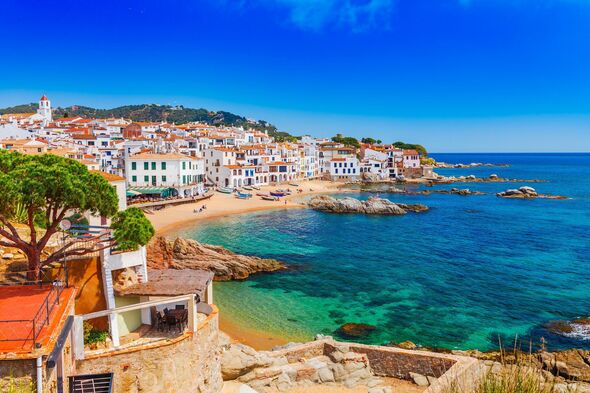Top Stories
Catalonia Surges as Spain’s Top Holiday Destination; Balearics Drop

UPDATE: New data from the Travelgate platform reveals that Catalonia has officially become the most popular holiday destination in Spain, overtaking the Balearic Islands. This urgent shift in travel trends comes as Spain prepares for another bustling tourist season, having welcomed a record-breaking 93.8 million visitors last year.
Recent reports show that holiday bookings to the Balearic Islands surged by 22.3% over the past week. However, despite this increase, the archipelago has fallen from third to fourth place in popularity. Catalonia now dominates with 18% of holiday bookings, highlighting a significant trend that could reshape tourism dynamics in Spain.
Tourists are flocking to Catalonia, renowned for its vibrant culture and architectural masterpieces, particularly in its capital, Barcelona. The city’s iconic sites, including Antoni Gaudí’s Sagrada Familia and Park Güell, are major draws for visitors. Catalonia’s appeal extends beyond the capital, with locations like the stunning Montserrat Mountain and the historically rich city of Tarragona offering unique experiences away from the crowds.
Following closely behind, Andalusia emerges as the second-most favored region, capturing 16.8% of bookings. This region is celebrated for its diverse cities, including Seville and Granada, as well as picturesque beaches along the Costa del Sol.
The Canary Islands occupy third place with 13.2% of bookings, known for their idyllic climate and outdoor activities, ranging from hiking to relaxing on pristine beaches. The Balearics, which include popular islands like Majorca and Ibiza, also garnered 13.2% of bookings, but their ranking has slipped this week.
This immediate shift in preferences is critical for stakeholders in Spain’s tourism sector, as domestic tourism remains strong. Recent data indicates that 50.4% of bookings have been made by Spaniards, followed by 20.5% from British travelers and 4.3% from Germans.
As the summer season approaches, authorities are keenly watching these trends. With 18.8% of bookings made between 15 and 30 days in advance, and 17.2% made one to two months out, the urgency for travel agencies and local businesses to adapt to these changing dynamics is undeniable.
What happens next? Expect ongoing fluctuations in booking patterns as travelers reassess their holiday plans, potentially leading to a reimagined landscape for tourism in Spain. The focus will be on how regions like Catalonia can maintain their newfound popularity and what strategies will be implemented by the Balearics to reclaim their status.
Stay tuned for further updates as this story develops.
-

 Top Stories2 months ago
Top Stories2 months agoTributes Surge for 9-Year-Old Leon Briody After Cancer Battle
-

 Entertainment3 months ago
Entertainment3 months agoAimee Osbourne Joins Family for Emotional Tribute to Ozzy
-

 Politics3 months ago
Politics3 months agoDanny Healy-Rae Considers Complaint After Altercation with Garda
-

 Top Stories3 months ago
Top Stories3 months agoIreland Enjoys Summer Heat as Hurricane Erin Approaches Atlantic
-

 World4 months ago
World4 months agoHawaii Commemorates 80 Years Since Hiroshima Bombing with Ceremony
-

 Top Stories2 months ago
Top Stories2 months agoNewcastle West Woman Patricia Foley Found Safe After Urgent Search
-

 Top Stories4 months ago
Top Stories4 months agoFianna Fáil TDs Urgently Consider Maire Geoghegan-Quinn for Presidency
-

 World4 months ago
World4 months agoGaza Aid Distribution Tragedy: 20 Killed Amid Ongoing Violence
-

 World4 months ago
World4 months agoCouple Convicted of Murdering Two-Year-Old Grandson in Wales
-

 Top Stories3 months ago
Top Stories3 months agoClimbing Errigal: A Must-Do Summer Adventure in Donegal
-

 Top Stories3 months ago
Top Stories3 months agoHike Donegal’s Errigal Mountain NOW for Unforgettable Summer Views
-

 World4 months ago
World4 months agoAristocrat Constance Marten and Partner Convicted of Infant Murder









